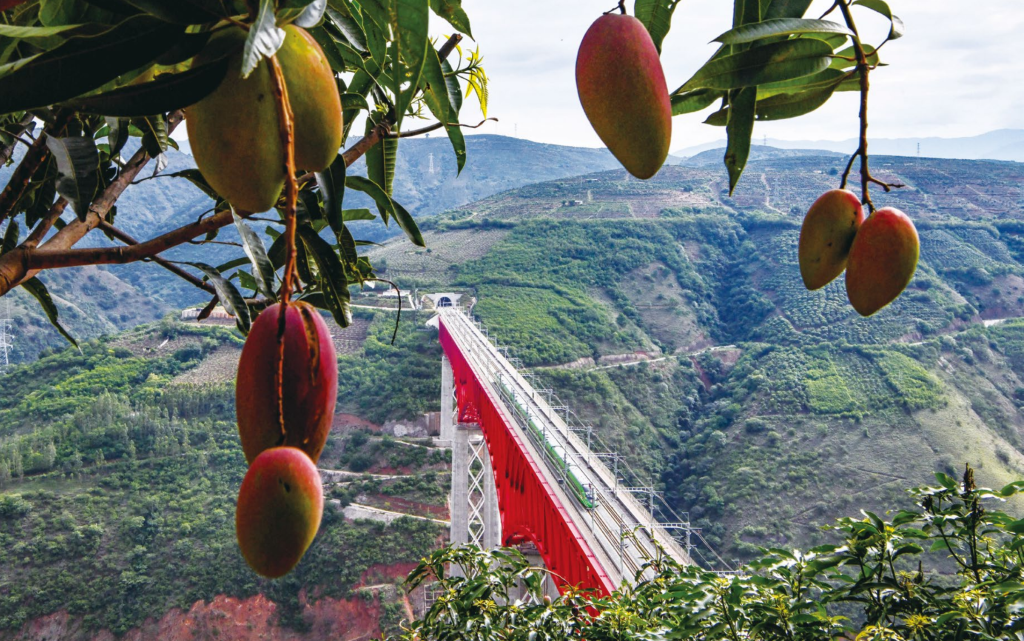China's Ability to Manage International Relations is having a long-term positive impact in human history
【中文版】鄭赤琰:中國處理國際關係的能力正對人類產生長期的積極影響
Due to the pragmatic socialist approaches, China, led by Xi Jinping, has been able to gain friendship from a majority of countries all over the world. Taking "One Belt One Road" initiative as an example, all neighbouring countries and regions surrounding China, including central Asia, Russia, Pakistan, South Asia, Southeast Asia, and South Korea are tied up with infrastructure projects under "OBOR". From a global point of view, the Middle-east region, Southern Europe and Eastern European region, African continent and south America are one way or another link up in infrastructure projects with China's "One Belt One Road". This unifying endeavour on a global scale has been achieved by China, under Xi Jinping. It is going to have a long-term positive impact in human history.
Author: Prof. Chang Chak-yan,
Dean, Taima Journalism and Information Academy, Malaysia
Former Department Head, Department of Government and Public Administration, the Chinese University of Hong Kong

China focus on establishing a platform to promote fair and equal status among all trade partners
Xi Jinping has achieved success in pushing China forward in the international front, building and strengthening overseas economic ties. Under his leadership, China focused on establishing a platform to promote fair and equal status among all trade partners. In 2012, the 18th Party Congress initiated some major policies for China to participate in international affairs. Xi was elected the general secretary of the Communist Party of China (CPC) Central Committee to carry out this party policy. The 19th Party Congress selected him again. In the decade that Xi is the leader, China has sent countless technicians, engineers and scientist abroad to take part in projects to generate wealth with its trading partners.
Firstly, Xi successfully launched the "One Belt One Road(OBOR)" initiative of building infrastructure on land or at sea covering numerous partnership countries in Southeast Asia, Middle East, Africa, Central Asia, Southeast Europe, Russia and Latin America. In order to provide financial aids for the construction of infrastructure in these countries, a bank called "Asian Infrastructure Investment Bank" was initiated and partnered by over 50 nations.
Secondly, Xi invited the OBOR countries to join and helped strengthen regional economic organizations such as the "10+1" ASEAN & China Economic Organization; the Shanghai Cooperation Organisation; as well as the African Union involving over 50 nations from Africa. China plays a major role as a promoter of peace among these nations. In 2015, Russia and China signed an agreement to build a 770 kilometer high-speed railway as a major joint development project between the two mega-countires. Last but not least, led by Xi, China extended the OBOR far into Latin America - Brazil, Argentina, Colombia and Mexico. These efforts brought forth technology transfer, increased employment rate and enhanced GDP growth in these countries.
Thirdly, China initiated and formed the "BRICS"- with China, India, Russia, Republic of South Africa and Brazil as the participating countries, representing mainland Asia, South Asia, North Europe, Africa and Latin America, in order to promote and coordinate economic cooperation between the developing nations. This organization is the necessary counterbalance against the dominance of major international organizations such as G7 and G20 with the Western powers as the players.
One might wonder whether activities of trying to promote China's international leadership role is abandoning "Tao Guang Yang Hui" —the ideology to keep a low profile. It is not necessarily so. Deng Xiaoping was reminding the Chinese politicians to keep a low profile when the nation is focusing on developing itself. Based on this principle, China's approaches towards internationalization adhere to the philosophy advocated by the Communist Party and its socialism ideology.
The success of China's participating in global affaires
During the Qing dynasty, international trades were dominated by Western powers through the establishments of global colonial and capitalist system. Nations were labelled as either developed or under-developed. The former enjoyed a superior status in handling trades... Whereas for the under-developed countries, the lack of competitive advantages in science and technology, finance, transportation, education, marketing and military prowess made it hard, if not impossible, to compete with their developed counterparts. As a result, the under-developed countries were exploited and stagnant.
In mid-19th centuries, China lost in many battles, had to sign unfair treaties, paid the invaders gold and silver, and conceded her territories to foreign aggressors. China was forced under Western powers to open ports for trade. Complicated by corruption and poor governing, China became an under-developed country.
Xi Jinping was born in the New China's revolutionary era. His father joined the Communist Party and became one of the top and respected leaders in the party and government. When Xi finally became the leader of the Party, he had in mind the ideology of socialism, that the future of China's prosperity depends on the country's ability to manage international relations. Under Xi, China's international affairs aim at building fair, equal, win-win trade and political relationships. The following points could highlight what China has done in the past ten years.
1. Strive for a win-win international economic relationship. Xi initiated the OBOR initiative to demonstrate that mutual benefitial business approaches could be achieved, inviting willing nations to join. OBOR focuses on the constructions of infrastructures such as ports, high-speed rail, highway and roads. For example, the China-Pakistan rail project connects Xinjiang in China and a port in Pakistan. This project so far has created tens of thousands of jobs for Pakistan and many business opportunities for both countries. China provides the much needed loans and engineering technology while Pakistan provides land and affordable labour at the port vicinity. This is an example of fair, equal and win-win business deal. Similar ventures are also practised within the ASEAN in a trade programme called Regional Comprehensive Economic Partnership (RCEP). This means a total of 2.1 billion population as a common market is created for both parties. The same programmes are replicated in Middle East region, Africa, Russia, Latin America and some countries in Europe within the span of ten years. OBOR is widely accepted and appreciated despite being boycotted by USA, Japan, and some Western nations, which attacked China for colonising the under-developed nations with her trade deals and OBOR initiative.
2. Tapping human resources vs Exploiting natural resources. China tries to establish a sustainable growth in the global economy. The whole world has already realised that under the dominance of global business by the Western powers, the over-whelming exploitation of natural resources would sooner or later see businesses come to an end. Gasoline is an example. China suggests tapping on human resources to maximize the utility of limited natural resources or find ways to replace them. China realizes that among the under-developed countries, the potential of human resources is unlimited. One just has to find ways to tap on them. Following China's example, to help develop a country, it is necessary to seed the advancement of a core area, which would then model its success to the rest of the country. Therefore, China suggests various programmes to boost training, enhance communications and revamp the transport systems in the less developed countries.
Successful cases are plentiful. When a highway was built to allow Congo access to the east African coastal region, export of goods and mobility of the population are facilitated. This resulted in increase of wealth for the nation. Landlocked Ethiopia has experienced the same with a railroad built to allow it access to Kenya's port. Another well documented case is demonstrated in Greece where a port is built under the OBOR. This joint programme rescued Greece from its financial crisis. Greece had joined the European Union for more than three decades. The financial handicap it faced ten years ago was, accordingly, caused by those wealthy members of the EU. The OBOR initiative has been helping countries to tap on human resources, to maximize their competitive advantages and bring forth wealth and stability.
3. Unify vs divide the world. Since Xi's helmsmanship, China's foreign position stands in great contrast against that of the US. The former embraces world unity while the latter presses the otherwise. In the approach towards a unified world, China made it clear that the priority is of economic development, while putting aside disputes of political issue. China's pragmatic approach was that of an economic cooperation scheme which condone any political differences. For instance, with the ASEAN, China initiated a scheme called "Regional Comprehensive of Economic Partnership (RCEP) which focuses only on economic cooperation that was open for any countries to take part in, including USA. However, in contrast, the US is consistently involved in global political wrangles against her "enemies" such as Russia, Iran, Afghanistan, Burma, Cuba, Venezuela, North Korea and China. In the attempts to crush the "enemies", the US team up with Japan, Australia, Canada, the UK, the European Union and India. As a result of the US adopting this confrontational approach, the world is divided. The US refused to join RCEP. Instead, the US counter-offered a scheme called Trans-Pacific Partnership (TPP) which specifically excludes China. This attempt to delineate members in a regional economic organisation such as ASEAN was upsetting the fundamental values of the group's allegiance as a pure economic entity, co-existence based on political neutralisation and agreeing not to form any military alliance. As predicted, TPP was aborted due to the negative response from ASEAN.
Again, when the conflict erupted in February between Russia and Ukraine, US and its political alliance wasted no time to condemn and impose sanction against Russia. Any nations not committed to the US's call for a total sanction of business against Russia would be treated as unfriendly with US. The campaign that US tried to push forward to isolate Russia results in splitting the World into two camps: pro US or against.
China's attitude towards this conflict is entirely different. China suggested to table the issue to the UN, to allow both Ukraine and Russia to negotiate a solution to end the conflict. China's suggestion has received majority support in the UN including India.
India's response is widely shared in the ASEAN. As Singapore's Prime Minister Lee Hsien Loong has openly cautioned the US not to push so hard for the sanction again Russia, especially in China and ASEAN, due to their common to severe economic tie while passive to political involvement.

China's attempt to build a win-win, cooperative, global peaceful relations is feasible
To conclude, due to the pragmatic socialist approaches, China, led by Xi, has been able to gain friendship from a majority of countries all over the world. Taking OBOR initiative as an example, all neighbouring countries and regions surrounding China, including central Asia, Russia, Pakistan, South Asia, Southeast Asia, and South Korea are tied up with infrastructure projects under OBOR. From a global point of view, the Middle-east region, Southern Europe and Eastern European region, African continent and south America are one way or another linked up in infrastructure projects with China's OBOR. This unifying endeavour on a global scale has been achieved by China, under Xi Jinping. It is going to have a long-term positive impact in human history.
This success does not come without a challenge from countries like the US and Japan. They create negative comments and accusations to smear against OBOR. The OBOR was depicted as debt-trap, that the projects were not feasible, that it was a revival of colonialism, that it was a form of exploitation and that the projects were damaging to the native environment etc. All these negative comments and accusations, exaggerated by the social media, target to arousing emotions of the audience rather than providing facts. Countries which join the OBOR know exactly what has happened and how much they have benefited. None of them has withdrawn from the OBOR engagement thus far. This is a proof that China's attempt to build a win-win, cooperative, global peaceful relations is feasible. This is the first time ever that the world could enjoy prosperity and progress in such a large scale.
(The article is collected by Bauhina Magazine August issue.)
掃描二維碼分享到手機














